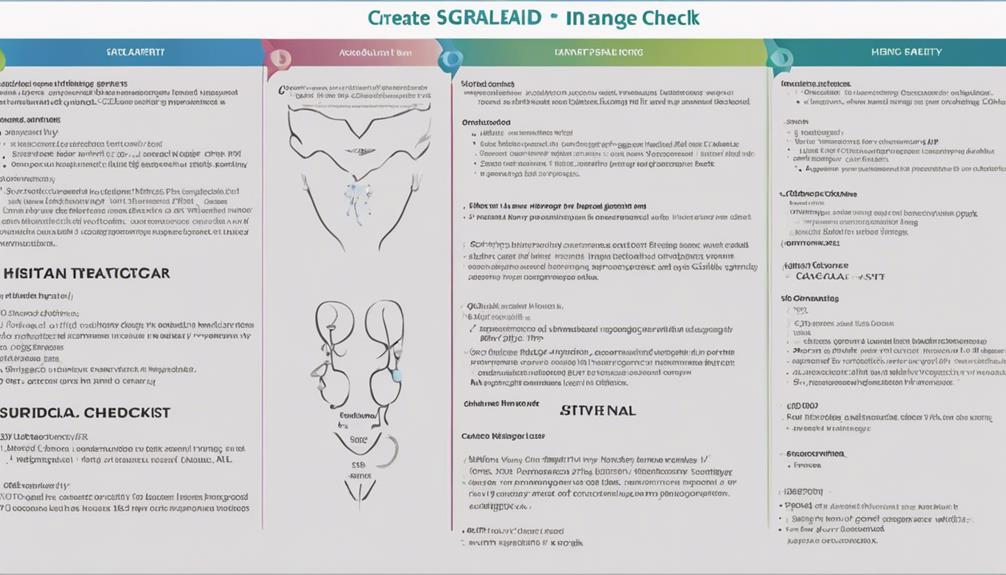As we delve into the intricate maze of crucial criteria for cochlear implants, we reveal a systematic approach that emphasizes the intricate procedures required during the evaluation phase. Each requirement, from audiometric assessments to determining eligibility for surgery, is essential for the success of cochlear implant procedures.
But what exactly sets apart a suitable candidate from others? Join us as we dissect the key factors that shape the path towards enhanced hearing capabilities and improved quality of life for individuals considering cochlear implants.
Key Takeaways
- Audiological evaluation guides implant candidacy.
- Medical assessment ensures anatomical suitability.
- Psychological screening assesses emotional readiness.
- Post-implant care involves regular monitoring and rehabilitation.
Audiological Evaluation
During the audiologic evaluation process for cochlear implant candidacy, a pure-tone audiogram is utilized to assess the type and degree of hearing loss in potential candidates. This assessment is crucial in determining the suitability of cochlear implants for individuals experiencing severe to profound hearing loss. The audiogram provides valuable information about the specific frequencies and intensity levels where the candidate may have difficulty hearing. By analyzing the shape of the audiogram, audiologists can predict which sounds the cochlear implant recipient may perceive more effectively post-implantation.
Furthermore, comparing aided and unaided outcomes on the audiogram helps in evaluating the potential benefits of cochlear implantation for the candidate. Understanding the type and degree of hearing loss through the audiogram, along with reviewing past audiological records, aids in assessing the stability and progression of the candidate's hearing loss. This comprehensive audiologic evaluation process is essential in determining the candidacy and predicting the success of cochlear implantation for individuals seeking to improve their hearing abilities.
Medical Assessment

Following the comprehensive audiological evaluation to assess cochlear implant candidacy, the next crucial step is the medical assessment, which evaluates the individual's overall health, hearing history, ear condition, and cochlear anatomy prior to surgery. During this evaluation, radiologic testing is conducted to visualize the cochlear anatomy and ensure suitability for implantation. Detailed evaluations are essential to determine the eligibility of individuals for cochlear implantation based on specific criteria for successful outcomes.
The assessment includes examining the cochlea to identify any contraindications to surgery. Medical assessments for cochlear implants are typically performed under general anesthesia to ensure patient comfort and safety throughout the process. By thoroughly assessing the individual's medical history, cochlear anatomy, and overall health, healthcare professionals can make informed decisions regarding the suitability for cochlear implant surgery, thus maximizing the chances of a successful outcome for the patient.
Psychological Evaluation
A critical aspect of the cochlear implant candidacy process involves conducting psychological evaluations to assess emotional readiness, coping skills, and expectations related to the implantation journey. These evaluations delve into the candidate's mental health, motivation, and support systems to ensure they have realistic expectations and psychological resilience for the cochlear implant journey.
—
| Psychological Evaluation Criteria | Description | Importance |
|---|---|---|
| Emotional Readiness | Assesses candidate's emotional preparedness for the cochlear implant process, including dealing with potential challenges. | Crucial for successful adaptation. |
| Coping Skills | Evaluates candidate's ability to manage stress, uncertainties, and changes that may arise during the implantation journey. | Essential for navigating difficulties. |
| Expectations | Examines candidate's outlook on post-implantation outcomes and ensures they have realistic expectations about the process. | Helps in setting achievable goals. |
—
These assessments play a vital role in identifying any psychological barriers or challenges that may affect the candidate's journey towards successful cochlear implantation.
Surgical Candidacy

To be considered for cochlear implantation, individuals must receive a diagnosis of bilateral moderate-to-profound sensorineural hearing impairment. When determining surgical candidacy for cochlear implants, several essential criteria must be met:
- Limited benefit from traditional hearing aids: Patients should show minimal improvement in hearing with traditional aids to be eligible for cochlear implantation.
- Cognitive ability for auditory interpretation: The ability to interpret auditory cues is crucial for the successful use of cochlear implants.
- Evaluation of cochlear anatomy: Assessment of cochlear anatomy ensures that the cochlear lumen is suitable for implantation, optimizing the chances of successful outcomes.
- Absence of contraindications: Individuals mustn't have medical conditions that pose risks during surgery, as ensuring safety is paramount for implantation suitability.
Meeting these criteria is vital to determine the appropriateness of cochlear implant surgery and maximize the potential benefits for individuals with significant hearing impairment.
Post-Implant Care
Post-implant care for cochlear implants necessitates regular follow-up appointments with the audiologist to adjust the sound processor settings effectively. Monitoring changes in hearing performance and device functionality is crucial during this phase. Rehabilitation activities like auditory training and speech therapy play a vital role in optimizing the benefits of the cochlear implant. Patients should prioritize protecting their implant from water exposure and physical damage to maintain optimal performance levels.
Adhering to the recommended maintenance guidelines provided by the healthcare team is essential for ensuring the long-term success of the cochlear implant. These guidelines include proper cleaning techniques, battery replacement schedules, and handling precautions. Any concerns or issues related to the device should be promptly addressed with the audiologist to prevent potential complications.
Frequently Asked Questions
What Are the Guidelines for Recommending Cochlear Implantation?
When recommending cochlear implantation, we consider factors like:
- Degree of hearing impairment
- Limited benefit from hearing aids
- Cognitive ability for auditory interpretation
- Suitability of cochlear anatomy
It's crucial to assess contraindications to surgery thoroughly. These guidelines help determine if a candidate is suitable for cochlear implants and can lead to successful outcomes.
Conclusion
In conclusion, while the criteria for cochlear implants may seem stringent, the benefits far outweigh the challenges. It's ironic that a small device can make such a significant impact on someone's quality of life.
Through the collaboration of medical professionals and advancements in technology, the future looks promising for individuals with hearing impairments. Remember, sometimes the smallest things can make the biggest difference.










